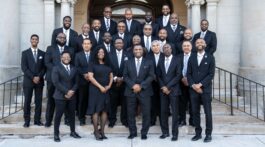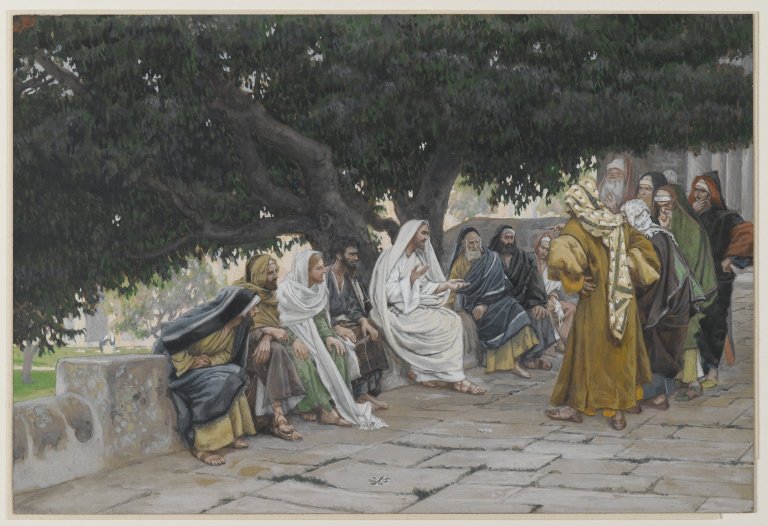When Jesus came to earth his people were divided. The three major divisions were Pharisees, Sadducees, and Zealots. Each of them in their own way believe that they were the truest form of Judaism, that they alone understood what was necessary to restore Israel to its rightful place in the world. Time and again Jesus and the early church came into conflict with one or more of these groups. Most important, none of these three groups recognized Jesus as the Messiah.
Let me put it another way. Each of these three groups that they had a unique understanding and calling and mission and purpose, and that they had the best interest of Judaism at heart. And when confronted with Jesus, the Messiah, the One to whom all the law and the prophets had been pointing, and who was the fulfillment of God’s plan for Israel, none of these groups welcomed him. Individuals within these groups may have come to recognize and follow him, but as a whole these groups rejected, even conspired to put him to death.
I have not yet mentioned the Essenes, because in their devotion to the law, they separated themselves from the rest of humanity. They are not mentioned in the New Testament, because Jesus never encountered them so far as we know. There is some speculation that John the Baptist was an Essene, because he dwelt by himself in the wilderness, as did they
I mention these four groups because I see strong parallels between them and factions within our denomination today. These tendencies of mind appear to be constant inhumanity, even though the specific doctrines or ideas they focus on may be quite different. To understand this, let’s look at these groups in turn.
The group we know the best of the Pharisees. The words “Pharisee,” and “pharisaical,” are negative, representing obnoxious and legalistic religion. But in Jesus’ day they were considered spiritual heroes. Looking back on their history, the Pharisees concluded that what had led to the destruction of the Israelite monarchy and subsequent exile was disregard for the Torah, being careless about their observance of the law, and becoming like the nations around them. In this, they were correct. God makes it very clear that abandoning his teachings and becoming like the nations around them had led to the downfall. So the premise upon which they began was correct. The practice was the problem.
They became obsessed with the minutest details, as Jesus said, tithing even mint, and anise, and cumin. They famously debated whether or not it was appropriate to eat an egg which a hen had laid on the Sabbath day, because the hen had “labored” to produce the egg. Because of their common occurrence in the New Testament, we are familiar with all sorts of these minute, and to us ridiculous regulations.
Inevitably, this focus on minute detail meant that they missed the purpose of all of these rules. Someone is defined a fanatic as “one who, losing sight of his goal, redoubles his efforts.” That describes the Pharisees to a T. That’s precisely what Jesus said to them, that they had missed “the weightier matters of the law.” Their response to the idolatry of their ancestors was to declare everyone else ritually unclean. This is how we are treated to the specter of Jews who will not enter pilots house because it would make them ceremonially unclean. So they summoned him outside where they petitioned to have Jesus put to death. Weightier matters indeed!
Where the Pharisees decided the answer to the unfaithfulness of their ancestors was to become more and more “Jewish,” the Sadducees had a different answer.
The Sadducees thought the way to restore Israel was to learn the ways of their oppressors. Not religiously, but politically. The high priest and his supporters tended to be Sadducees. They were, in their own own eyes and those of the Romans, more sophisticated. They did not believe in the resurrection, something which the apostle Paul used to his advantage by provoking an argument between the Sadducees and the Pharisees on that topic. They also saw themselves as pragmatic. It was a Sadducee who declared that it was better for one person to die for the nation, rather than the nation be destroyed. Whereas the Pharisees appeared more holy to the ordinary Jew, and had greater influence, the Sadducees held the levers of structural power.
The Zealots were the revolutionaries, those determined to use direct action, even violence, to throw off the Roman yoke. They were less into theology than raw power.
With the exception of the Essenes, all the other groups are mentioned, one way or another, in the New Testament. The Essenes not only were not mentioned in scripture, they remained essentially unknown to Christianity for centuries, until the discovery and translation of the Dead Sea Scrolls. That’s because the Essenes lived completely apart from the everyone else. They separated themselves from the world in order to concentrate on personal holiness and purity. We know from reading their literature, preserved among the Dead Sea Scrolls, that many of their ideas influenced some of the New Testament authors. John the Baptist, who himself lived away from civilization, appears to reflect some of their ideas.
Many ordinary Jews sympathized with some of the views of each of the groups. But it had to be very confusing, and more than a little disheartening. As a people, they were already dispersed throughout the Roman Empire. Hebrew had ceased to be spoken except as a religious language. Those who lived in the traditional homeland, spoke Aramaic–as did Jesus. Many who lived elsewhere spoke Greek. In fact, so many spoke Greek, and could no longer read Hebrew, that their scriptures had been translated into Greek–what we call the Septuagint.
This is the fractured faith community which confronted Jesus, and it bears more than passing resemblance to our own denomination today. And that offers us an opportunity to understand what is happening in the church, and as we examine how Jesus dealt with these factions, we may learn how to chart our own course through these troubled waters constructively, and how to preserve and build our faith.










